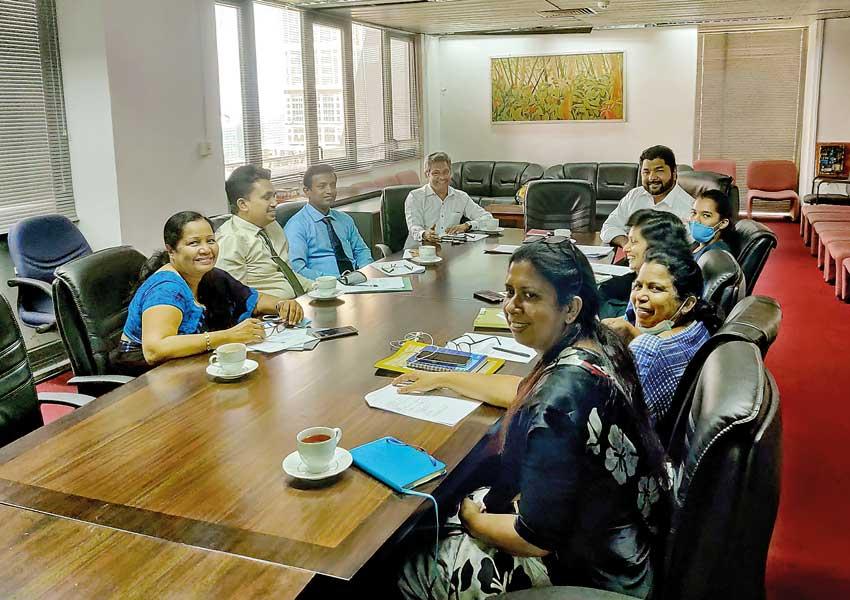Reply To:
Name - Reply Comment

DCS officials in discussion with EDB officials and logistics industry representatives on proposed logistics industry data unit
In an effort to capture accurate and timely logistics industry data, the Export Development Board (EDB) and Department of Census and Statistics (DCS) have collaborated to set up a special data unit that will gather and analyse sector data.
The data unit, which will be established at the DCS, will receive technical input from the EDB’s Advisory Committee on Logistics.
One of the objectives of the unit is to determine the economic contribution of logistics to Sri Lanka’s economy, the EDB said.
“In a highly competitive industry, the logistics market giants confront stiff competition on pricing and speed. As such, industry leads traditionally guard their fleet data from the prying eyes of competitors.
Given this backdrop of data-sharing insecurity, a state-led national initiative, spearheaded by the DCS and EDB, is bridging a gap to foster a collaborative atmosphere of transparent data sharing between the industry and government institutes,” the EDB said in a statement yesterday.
It added that the contemporary industry data can raise the possibility of positively influencing the Logistics Performance Index (LPI).
The LPI is a tool widely used in global logistics research for country benchmarking, comparison and as a mechanism for analysing intra-country logistics performance. Sri Lanka currently ranks at 94, among 160 nations.
Expressing confidence in the value addition of the new project spilling over to the private sector, the EDB expressed that when the macroeconomic broad strokes are canvassed, service providers will be capacitated to pursue more data-driven decisions.
The proposed data unit, endorsed by the National Exports Strategy (NES), is steered with technical guidance from the EDB’s Advisory Committee on Logistics.
The Members of the Advisory Committee had met with the senior officials and statisticians from the DCS to provide technical insight on fine-tuning the data collection methodology.
The EDB shared that the DCS will produce a range of logistics industry-related economic indicators, such as the logistics industry contribution to GDP.
Furthermore, the EDB shared that the stakeholders from both entities have agreed on a range of deep-dive data parameters, which include but not limited to services such as warehousing, clearing, freight forwarding, air cargo, 3PL, port operators and terminal operators.
Preliminary discussions have also been ongoing to assess the possibility of leveraging the data management skills of the University of Moratuwa, Transport and Logistics Management Department, to produce actionable insights from raw data.
On finalising the data parameters, the DCS will reach out to logistics service providers and industry associations to facilitate the data collection exercise.